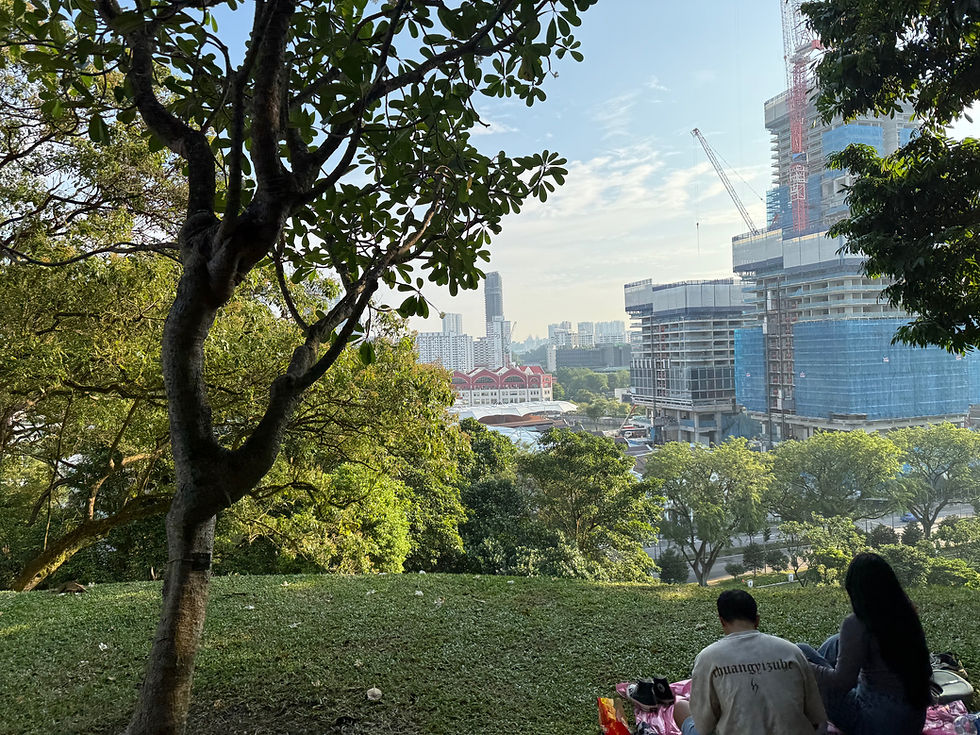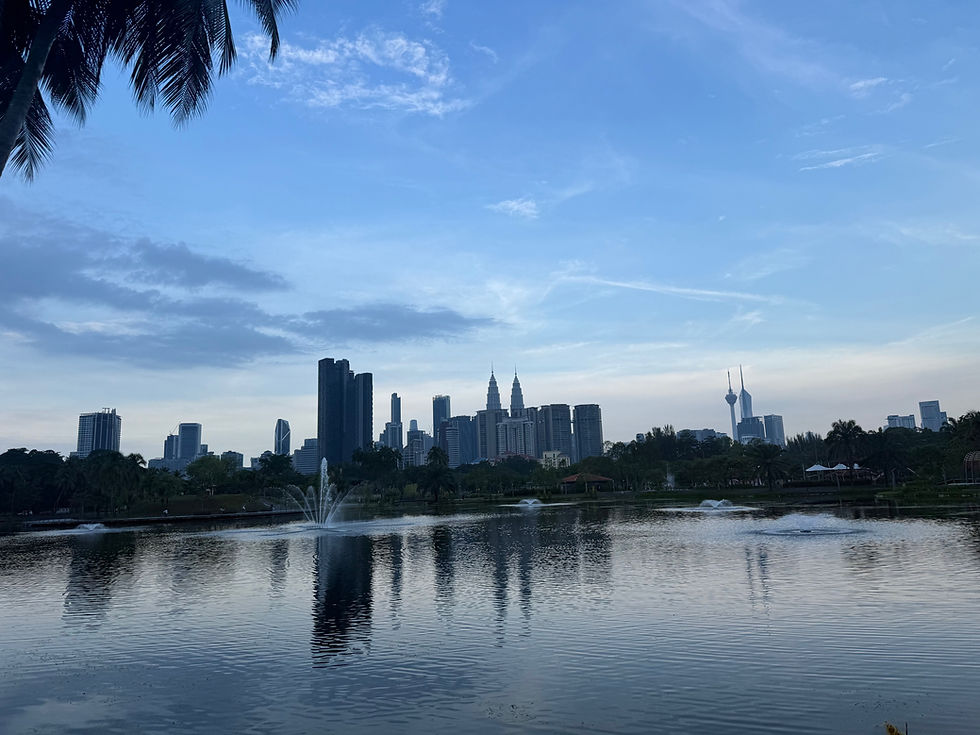What’s the Deal with Colombia?
- Nikola Ranick
- Jun 17, 2018
- 5 min read
Updated: Jul 8, 2020
Interested in the Colombian election today? Well here is a little back-information that probably should have been posted a bit sooner:
You thought 2016 was bad? Try a far-right peace-bashing frontrunner and a former militant far-leftist jockeying for the Colombian Open Presidential Seat. Either are promising to greatly shake up the status quo. If it sounds incredibly hostile, that is because it is. But how did one of the most ambitious and recently more peaceful countries in Latin America get here? That takes a bit of back story, and yes millennials, it has everything to do with drugs.
Giving a FARC
In terms of recent history (post-WWII), a lot of Colombia’s time has seen it in a virtual civil war, with violence varying strongly by time period (very bad in the 90s, lesser so in recent years) and certainly by geography. Arising during the Cold War, FARC and other rebel groups have their DNA in Communistic sympathy and utopian ambitions, usually relying on the drug trade as their form of income and support. Skirmishes with FARC in particular dragged on for decades before incumbent President Juan Manuel Santos finally negotiated a seemingly positive ceasefire and communicable relationship with FARC leadership. This culminated in the 2015 deal that would essentially see the conflict end, in exchange for civic retraining of FARC rebellion groups, weapon turn-ins, pardons, and guaranteed seats in the next round of elections. In order to maintain legitimacy, Santos then enabled a referendum on the merits of the agreement, a referendum which he narrowly, but still stunningly, lost. Notably, the municipalities in Colombia the most distant from the conflicts were the areas that voted no to this treaty, while those poorer areas on the frontline of conflict voted for peace. Despite this setback, Manuel Santos went back to the negotiating table with a still-willing FARC, procured a more moderate deal, and, this time, avoided any ballot box controversy. The following treaty maintained mostly the same statutes as the previous agreement, with most FARC militants re-engaged in regular society as well as the electoral process. The peace process however, still faced a number of obstacles. For one, retraining centers and weapon collection processes were far behind what the original deal promised. Santos faced funding pressures and likely financial realities which made it harder for this substantial portion of the population to re-integrate themselves. Another issue was the lackluster treatment of FARC rebels. As they were responsible for much terrorism and violence, it shouldn’t be surprising that many pardoned individuals and electoral figures were disliked. The degree of assassinations and kidnappings were still pretty stunning, enough so to raise concerns the deal would falter. Yet the with the most danming problem with this peace deal is the one least able to be seen: The public is still reluctant, if not completely skeptical of its merits/legitimacy. Such has led to the surge in rightism this cycle and to cynicism surrounding the deal. Needless to say, FARC has not seen too much strength in the polls, going so far as to withdraw their flagging presidential candidate rather than face a humiliating result in the first round. Perhaps indicating the fatigue of the movement, FARC has taken their depreciating standing in the deal with bitter acceptance. It may seem clear that the group was just tired of fighting. The same cannot be said for other rebel groups, which now find themselves in similar on-and-off again negotiations.
Colombia Now
New election, new drama, and a case of political extremes like no other. The parliamentary elections alongside the first round of voting saw a mostly divided parliament with a loss in Santos’s centrist parties and decent gains by the right. Seeing numerous moderate candidates fall short (although not in total vote share), the Colombian President election will be fought by Ivan Duque, a far rightist allied with former president and deal-loather Álvaro Uribe, and by leftist candidate Gustavo Petro, the former mayor of Bogota. Both have many flaws and find themselves equally toxic in invoked reactions. They also both command about equal uncertainty in their governing style/policy, at least in my opinion. For Duque, his connections to Uribe are perhaps the most alarming, as are his pledges to tweak the FARC deal. Due to the above complacency, fears of the deal going up in flames are unlikely, however remember Civil War is the norm for this country and especially for FARC. What is more alarming in this anti-deal rhetoric is the prospect for peace deals with other groups, notably the ELN. Although FARC was the largest group, there are numerous others that make peace still a distant reality for corners of the Colombia. Business groups, on the other hand, are ok with Duque as long as he maintains the friendly regulatory environment he has promised. Still, if you ask me, there is nothing more anti-business than civil wars and terrorism… As for Petro, his success is rather shocking. Due to the extremities of FARC and other communist-affiliated rebel groups, far-left politics have been a distant concept. Yet Petro’s millions of votes represent a change in the political climate that may embody the norm as formerly leftist rebel groups integrate into the mainstream. Petro is no fan of the peace deal either, but his radical ideas of regulations galore and re-nationalization are what really terrify the business community. For those reasons and more, Duque is both the domestic and international favorite. I would tend to agree he is more likely to win than not, and I actually see him as possibly a good president if he follows the right path. When it comes to his governing potential, I think of Lenin Moreno, the socialist presidential successor to Rafael Correa in Ecuador. He won under questionable circumstances, as a seemingly servile successor to Correa and his far-left legacy. But Moreno remade the presidency as his own, appointed more centrist advisers, and gutted the corrupt institutions that Correa had built up. These changes went so far as to have Moreno virtually disowned by the now-abroad Correa. Like so to Duque, his presidency can be as best as it can be if he keeps his distance form Uribe. That former president is an irrational figure, a shallow opportunist, and a political beast above all else. Duque should pursue his natural instincts hopefully for higher social and economic possibilities and really tone down the anti-deal stuff. Because the reality is, as much as it sucks to reintegrate terrorists into society, history as proven there is literally no other option than reconciliation. And younger groups like the ELN are frankly less conciliatory than their larger elders. The best way forward for Colombia would seem to be the inevitable: A Duque one, but one that sees a campaign in (reactionary) poetry, hopefully followed by pragmatic and Uribe-less prose.






Comments